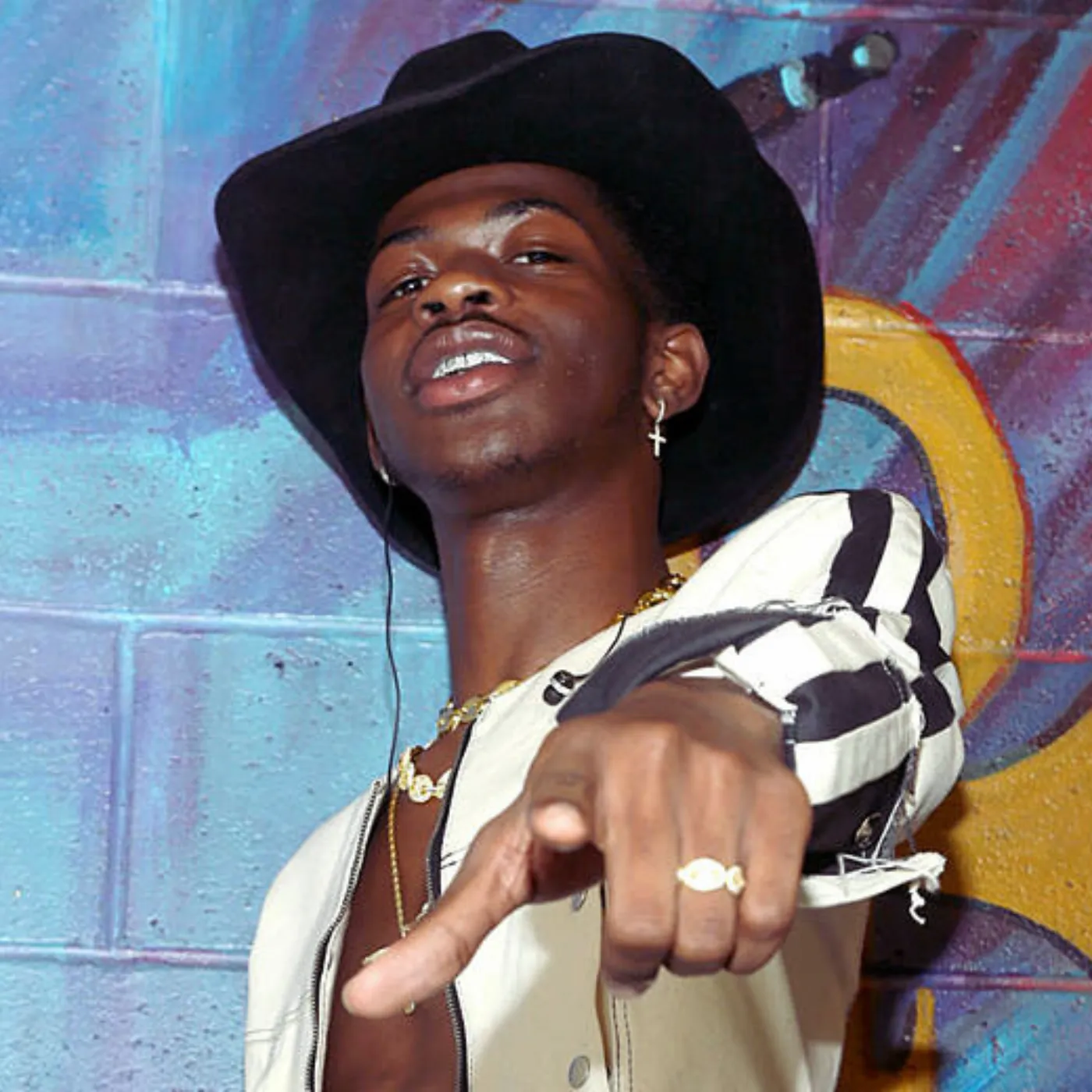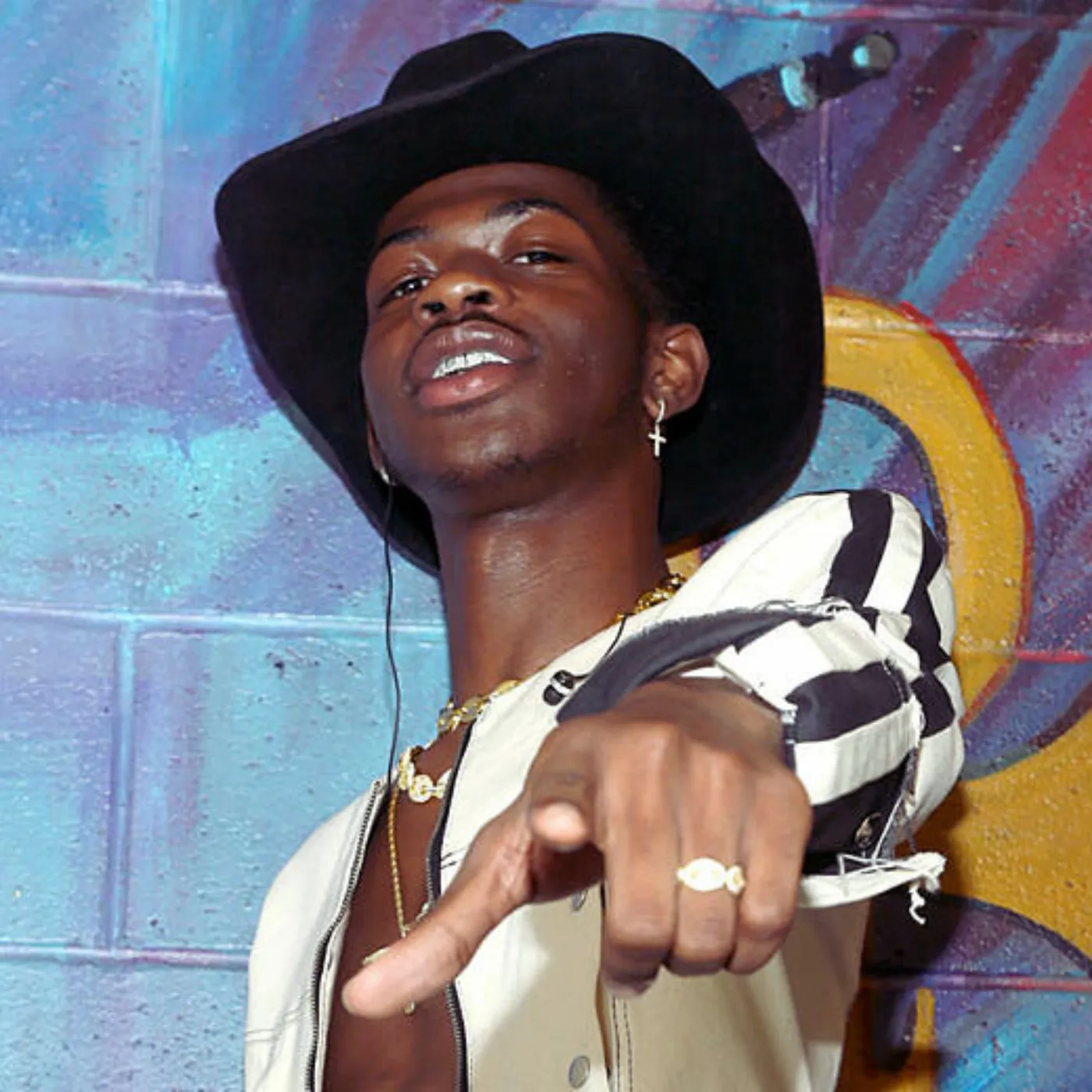

From Viral King to Underdog? Lil Nas X’s Old Town Road Just Got Passed
In a development that has stunned fans and shaken the digital music throne, Post Malone and Swae Lee’s “Sunflower” has officially become the most streamed song of all time in the United States, surpassing a giant that once seemed untouchable: Lil Nas X’s “Old Town Road.”

The numbers don’t lie. As of this week, “Sunflower” has racked up a staggering 3.96 billion streams in the U.S. alone, nudging “Old Town Road” out of the top spot it held for years. The moment marks a seismic shift in digital music culture, and it’s sparking everything from nostalgic reflection to outright chart warfare.
Because this isn’t just about a song.
This is about a symbol of internet power, a record-breaking moment being eclipsed, and whether or not Lil Nas X’s once-in-a-generation hit is starting to fade in influence—or simply evolving.
A Surprise Surge From a Slow Burner
What makes “Sunflower’s” rise even more surprising is that it wasn’t an overnight sensation. Released in October 2018 as part of the Spider-Man: Into the Spider-Verse soundtrack, the track was a slow burn, gradually accumulating cultural weight through streaming platforms, TikTok resurgence, radio play, and meme culture.
Unlike “Old Town Road,” which burst onto the scene like a sonic wildfire in 2019 and stayed at No. 1 for a record-breaking 19 weeks, “Sunflower” took the long route to the top. It didn’t just climb—it quietly hovered, embedding itself in playlists, commercials, and social feeds for years.
And now, it’s quietly dethroned one of the most iconic viral hits in American music history.
Old Town Road: The Giant That Broke the System
Let’s not forget what “Old Town Road” represented. More than just a catchy tune with a cowboy hat twist, it was the first true product of meme-to-mainstream evolution. Fueled by TikTok, Reddit, and every middle school hallway in America, the song bulldozed industry expectations—and rules.
It sparked genre debates, broke Billboard’s traditionalist metrics, and turned Lil Nas X—a complete unknown—into a chart-dominating, culture-defining force in a matter of weeks.
The track became certified Diamond faster than any song in RIAA history, topped the charts in over a dozen countries, and rewrote what virality in music meant. It wasn’t just a hit. It was a movement.
So for “Sunflower” to quietly eclipse it in streams? That’s not just a numbers game. That’s an emotional pivot point in digital music history.
Fans React: Is This the End of an Era or Just a Reminder?
Predictably, the reactions online have been explosive. Lil Nas X’s fans are already calling it a “technicality,” pointing out that “Old Town Road” was an era-defining hit that achieved its success faster, louder, and with far more cultural impact.
“Sunflower may have more streams, but Old Town Road changed the world,” reads one of the most shared tweets this week.
Another fan added, “Nobody quotes Sunflower. Everyone lived Old Town Road.”
But numbers are numbers. And for now, “Sunflower” sits on the throne.
Meanwhile, Lil Nas X has stayed silent—at least for now. No cryptic tweets. No subtweets. Just silence. Which, given his usual flair for commentary, feels eerily strategic.
And perhaps that’s the point. Because a comeback needs a moment, and this might be the spark he was waiting for.

Is the Algorithm Playing Favorites?
It’s hard not to notice the difference in tone between the two tracks. “Old Town Road” was built on chaos, genre-bending, and internet anarchy, while “Sunflower” offers a soft, syrupy, feel-good formula. It’s the musical equivalent of a comfort blanket—streamable, replayable, and universal.
Some fans are even suggesting that “Sunflower” benefited from algorithmic preference, especially from family-friendly platforms, curated playlists, and continuous rotation in movies, shopping centers, and even dental offices.
“The algorithm picked the safest song. That’s what won, not the best song,” one music analyst tweeted, triggering a wave of heated replies.
Is that fair? Maybe. Maybe not. But it’s a glaring reminder that virality isn’t always about being loud—sometimes, it’s about being inescapably pleasant.
What This Means for Lil Nas X Moving Forward
Make no mistake—Lil Nas X is still very much a main character in modern music. From his unfiltered digital persona to his genre-defying approach, he remains a pivotal force in shaping how music reaches people in the 2020s.
But this dethroning marks something else: a turning point in his narrative arc.
No longer the rebel outsider shaking up the charts, he now stands as a legacy act facing the next generation of viral challengers. And nothing sparks reinvention like being knocked off the top.
If history has taught us anything about Lil Nas X, it’s that he doesn’t respond quietly. He responds with scale. With vision. With something no one else thought possible.
So don’t be surprised if this record loss isn’t a retreat but the setup for something far more audacious.
Post Malone & Swae Lee: The Unlikely Crown Holders
It’s also worth asking: why “Sunflower”?
Post Malone has always been a streaming heavyweight. Swae Lee, while less spotlighted, remains one of pop’s most versatile voices. But “Sunflower” didn’t scream “record-breaker” when it first dropped.
It was a soundtrack song. A vibe. A gentle presence.
And yet, it survived.
Through TikTok trends, Spotify Discover, Instagram captions, movie reruns, and more—it quietly stayed relevant for almost six years. That kind of staying power is rare in a culture that burns through trends every Tuesday.
It’s less a sprint and more a marathon—and the marathon finally crossed the finish line ahead of a giant.
The Bigger Question: What Defines a Hit in 2025?
As streaming continues to dominate the music ecosystem, the very definition of a “hit” is evolving. Is it
The song that broke the most records in the shortest time?
The track with the longest tail of passive plays?
The viral moment that becomes a meme, then a movement?
Or the tune that quietly accumulates 3.96 billion plays without anyone realizing it?
If “Sunflower” is the new gold standard, it suggests that comfort music, not chaos, may rule the charts moving forward.
But if Lil Nas X has anything to say about it, that could change—very soon.

Final Thoughts: A Loss, But Not a Defeat
Numbers matter. Streams get headlines. Records make news.
But impact? Influence? Cultural penetration? That’s harder to measure.
While “Sunflower” now sits atop the streaming throne, “Old Town Road” still lives in a different kind of hall of fame—the one where trends were born, rules were broken, and an entire generation realized they could change the music game from a laptop.
For now, Lil Nas X may not be number one on the chart.
But he’s still the reason charts look the way they do in 2025.
And that legacy?
Untouchable.


















